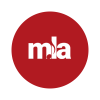CMC: Content Standards Subcommittee Annual Report 2023
submitted by Keith Knop
Current Roster
- Keith Knop, chair (2024)
- Anne Adams (2027)
- Linda Bagley (2024)
- Emily Colucci (2026)
- Reed David (2024)
- Sarah Holmes (2023 (resigned))
- Chelsea Hoover (2026)
- Karen Peters (2027)
- Daniel Ray (2027)
- Amanda Scott (2025)
- Anthony Sharp (2027)
- Amy Strickland (2027)
- Casey Mullin (BIBCO Music Funnel Coordinator)
- Mark Scharff (NACO Music Project Coordinator)
- Christopher Holden (Library of Congress Representative)
- Jay Weitz (OCLC Representative, through June 2023)
List of Previous Goals and Progress Made
- Work to maintain the MLA Best Practices in pace with changes to RDA and LC-PCC policy, add content where the community has requested it while the Toolkit was frozen, and solicit feedback to identify areas, repertoires, or musical traditions in need of additional guidance.
- RDA and LC-PCC PS have remained fairly stable over the past year, with most changes affecting elements with little or no relevance to music cataloging. Efforts have thus focused mostly on enhancement and revision of supplemental documentation.
- Supplement 1 to the Best Practices was updated to adjust recommendations for provider-neutral cataloging of remote-access audio resources and incorporate guidance from the new unified OLAC Best Practices document.
- Version 0.93 of MLA RDA Metadata Guidance added a new format-specific guidance section for sound recordings and a more in-depth explanation of the MLA Application Profile based on feedback.
- Several missing elements were added to the draft MLA Application Profile and the MARC overview in MLA RDA Metadata Guidance based on feedback.
- Investigate options to improve accessibility and usability of MLA cataloging documentation outside the RDA Toolkit.
- Version 0.93 of MLA RDA Metadata Guidance was released in two formats: as a single-document PDF available on the CMC website, as with previous versions, and as a fully searchable web resource available through GitHub Pages under the MLA GitHub account (https://musiclibraryassociation.github.io/mla-rda-mg).
- Several changes to color, spacing, contrast, and navigation were made based on accessibility feedback from CMC members. There are some unresolved issues with automatically generated ARIA screen reader labels for tables.
- The source files used to generate both documents are also available in a public GitHub repository (https://github.com/MusicLibraryAssociation/mla-rda-mg).
- Version 0.93 of MLA RDA Metadata Guidance was released in two formats: as a single-document PDF available on the CMC website, as with previous versions, and as a fully searchable web resource available through GitHub Pages under the MLA GitHub account (https://musiclibraryassociation.github.io/mla-rda-mg).
- Work with other cataloging organizations to represent the views and needs of the music cataloging community.
- CSS prepared two RDA discussion papers to be presented at the July meeting of CC:DA, one to do with clarifying the purpose of the RDA File Type vocabulary and adding missing terms appropriate to files consisting of notated music, and the other addressing opus, serial, and thematic index numbers that identify specific expressions of musical works rather than the musical works themselves. Feedback from these discussions will be refined into RDA proposals with the assistance of North American RDA Committee (NARDAC) representative Bob Maxwell.
- Provide leadership for RDA-focused training opportunities (e.g., MLA-sponsored webinars, conference presentations, etc.). Explore opportunities for small-scale, open-access, informal training.
- The chair gave two presentations on RDA, both now available via Humanities Commons: “RDA Changes in Theory and Practice” (with Kathy Glennan and Damian Iseminger) for MLA (https://hcommons.org/deposits/item/hc:52211/) and “Aggregates for the Practical Cataloger” for MOUG (https://hcommons.org/deposits/item/hc:52507/).
- The ALA eLearning course “Introduction to Music Cataloging” was offered again, alongside other CMC-sponsored courses as part of a music cataloging bundle. The MLA Education Committee Chair requested and was given the course materials for possible inclusion in Humanities Commons.
List of Future Goals
- Work to maintain the MLA Best Practices in pace with changes to RDA and LC-PCC policy, add content where the community has requested it while the Toolkit was frozen, and solicit feedback to identify areas, repertoires, or musical traditions in need of additional guidance.
- Goal Area 2: Develop and Retain Membership, Objective 2.4: Support members working in various disciplines within an organization that also includes aspects of music librarianship.
- Plan for the sustainability of MLA documentation for cataloging in RDA. Work to improve the utility of these documents so they can be of use to those who do not have access to the RDA Toolkit.
- Goal Area 2: Develop and Retain Membership, Objective 2.4: Support members working in various disciplines within an organization that also includes aspects of music librarianship.
- Goal Area 3: Cultivate Inclusivity, Objective 3.5: Prioritize accessibility at all MLA events, in-person and virtual, and in all MLA virtual spaces.
- Work with other cataloging organizations to represent the views and needs of the music cataloging community.
- Goal Area 2: Develop and Retain Membership, Objective 2.6: Promote MLA as being an Association that will advocate for our profession, our members, our users, our institutions and for diversity….
- Provide leadership for RDA-focused training opportunities (e.g., MLA-sponsored webinars, conference presentations, etc.). Explore opportunities for small-scale, open-access, informal training.
- Goal Area 2: Develop and Retain Membership, Objective 2.3: Explore educational and networking opportunities beyond annual and chapter conferences….
- Goal Area 3: Cultivate Inclusivity, Objective 3.2: Draw on member expertise by offering informal educational workshops, webinars, and panels….
